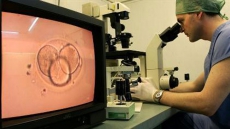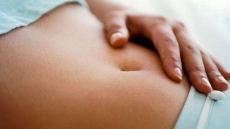TORONTO — Children who have had their tonsils removed because they have obstructive sleep apnea should be given ibuprofen not morphine for pain after the surgery, a new study suggests.
The research suggests pain can be controlled effectively with a combination of acetaminophen and ibuprofen — sold under the brand names Advil and Motrin among others — in most cases. When that combination is sufficient it is the approach that should be used, the authors say.
Currently many doctors use acetaminophen and morphine in these children, fearing that use of ibuprofen might trigger bleeding where the tonsils were removed.
But the study found that morphine actually lowers oxygen saturation — oxygen levels in the blood — among many of these children in the first couple of nights after having the operation. The authors said it would be safer not to use the drug if it can be avoided.
"We're not quite saying: Hey, let's sound the alarm bells completely, take this off the market for kids. That's not what we're saying," explained Dr. Doron Sommer, one of the authors.
"But we are saying: Be really careful.... It's not as safe as we thought it was."
The study was conducted by researchers at the Motherisk Program at Toronto's Hospital for Sick Children and McMaster University Medical Centre. It was published Monday in the journal Pediatrics.
Dr. David Juurlink, an expert in pharmacology and toxicology, said that while the study was a small one, the findings were persuasive.
"This study seems to lend credence to the notion that in appropriately selected patients, non-steroidals and acetaminophen are ... a suitable and probably preferable alternative," said Juurlink, who was not involved in the research. He practices at Toronto's Sunnybrook Health Sciences Centre.
Ibuprofen is a non-steroidal anti-inflammatory drug.
"I think the enthusiasm for morphine probably stems from the perception that many physicians hold that opioids are stronger or better pain relievers than anti-inflammatories. And I think for many patients that's actually not true," Juurlink said.
Until a few years ago, children who had a tonsillectomy for obstructive sleep disorder were given acetaminophen and codeine for their pain.
But when three children in the United States died after receiving codeine for pain triggered by a tonsillectomy, the U.S. Food and Drug Administration — and later Health Canada — advised against its use. In 2013, Health Canada said codeine should not be given to children under the age of 12.
That led to a switch to morphine. Although it too is an opioid, it was thought to be safer. But this group of scientists decided to see if that assumption was true.
They randomly assigned 91 children aged one to 10 years who were having a tonsillectomy for obstructive sleep apnea to be treated with acetaminophen and morphine or acetaminophen and ibuprofen for pain.
Enlarged tonsils can actually impede night-time breathing; these days it is the most common reason children undergo tonsillectomies. And the operation is pretty common. About 500,000 tonsillectomies were performed in the U.S. in 2014 and in Ontario alone, close to 14,000 took place, said Sommer, a head and neck surgeon at McMaster University Medical Centre.
Once the tonsils were removed, you would have expected to see oxygen saturation levels go up in children who had obstructive sleep apnea. But only 14 per cent of the kids who got morphine improved in the first night after their surgery, compared to 68 per cent of the kids who got ibuprofen.
In fact, one of the children who got morphine had to be rushed back to hospital because her lips were blue, her heart rate was slow and she was unresponsive. She was given an antidote to the morphine and spent four days in hospital, but made a full recovery.
Sommer said the findings don't apply to children who are having their tonsils removed because they are chronically infected, or children who stay overnight in hospital after a tonsillectomy because they will be monitored.
The research was funded by the Canadian Institutes for Health Research Drug Safety and Effectiveness Network.




